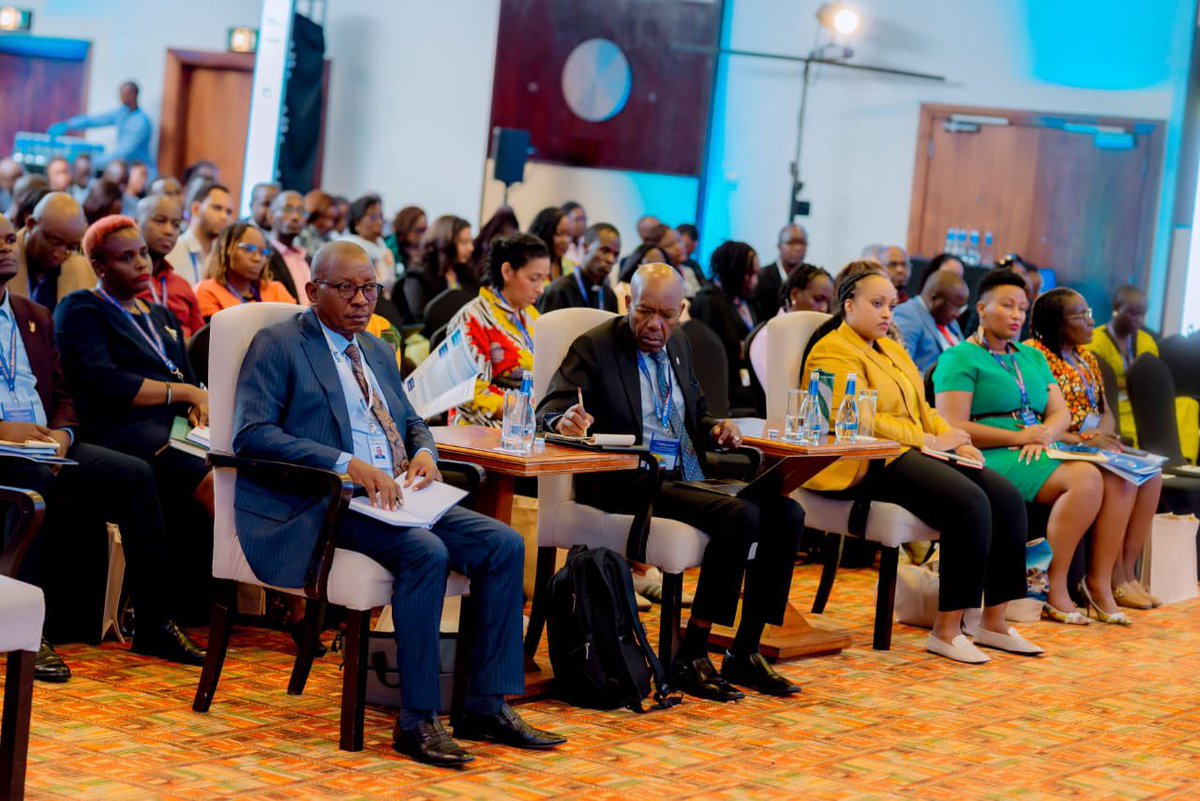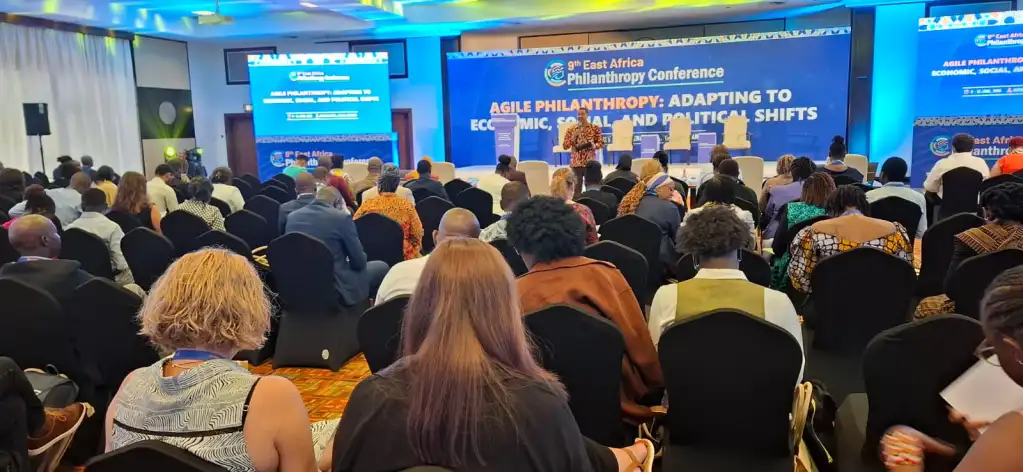By; Alphonse Uhagaze
The 9th East Africa Philanthropy Conference kicked off Tuesday in Kigali, bringing together regional and international experts to explore how philanthropy can adapt to economic, social, and political shifts.
Held under the theme “Agile Philanthropy — Adapting to Economic, Social, and Political Shifts,” the four-day event, which runs through June 14, convenes a diverse community of practitioners and thinkers aiming to reimagine philanthropy across East Africa.

Opening day sessions focused on analyzing the philanthropic ecosystem, including power dynamics, structural gaps, and the evolving roles of different actors. The conference agenda features topics such as capital design, civic legitimacy, narrative ownership, and resourcing justice.
In his keynote address, Rwanda’s Minister of Finance and Economic Planning, Yusuf Murangwa, emphasized philanthropy’s growing importance as traditional development aid declines.
“Even in the current situation, we have seen many philanthropies stepping up to fill part of the gap created by reducing official development assistance,” Murangwa said. “Aid is and will continue to reduce, but with such expectations on philanthropy increasing, the sector must adapt.”
Murangwa praised the East Africa Philanthropy Network’s long-standing contribution to Rwanda’s development, crediting values such as solidarity, participation, and self-reliance for the country’s progress.
Evans Okinyi, CEO of the East Africa Philanthropy Network, called for a bold shift in how the sector approaches power, leadership, and collaboration. He emphasized the need to move beyond traditional silos and include communities and private sector actors as co-creators in development.
“None of us can work in isolation,” Okinyi said. “Philanthropy must stop treating communities as passive recipients. They know the solutions to the challenges they are facing.”
He added that legitimacy and long-term relevance depend on engaging the public with honesty and trust.
Eunice Mwende, executive director of Alight Rwanda and local host of the conference, echoed that sentiment. She urged development actors to confront outdated systems and champion new, community-led models.
“We cannot continue promoting a system that is already dying by itself,” Mwende said. “What we need is a bold shift — practitioners must become catalysts of a new model grounded in community-led solutions.”

Ronald Kimambo of the Firelight Foundation in Tanzania emphasized the importance of internal reflection and flexibility in funding. He said that sustainability should be rooted in shared purpose and local leadership rather than increased donor funding alone.
Harriet Kamanshanyu of Rhythm of Life in Uganda described the current moment as “epic,” urging civil society to rethink sustainability and embrace grassroots funding models.
“We need to redesign the wheel,” she said. “Let’s challenge the sector to let go of its dependency mindset and build models that are resilient, flexible, and realistic.”
The conference continues through Friday with additional panels, workshops, and collaborative discussions aimed at strengthening the region’s philanthropic impact.











